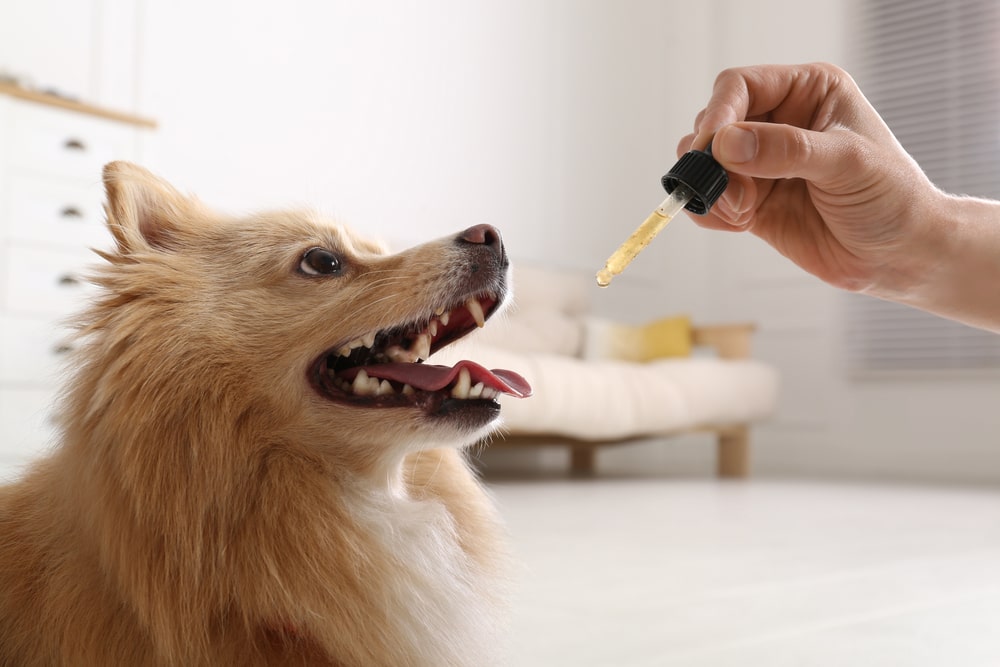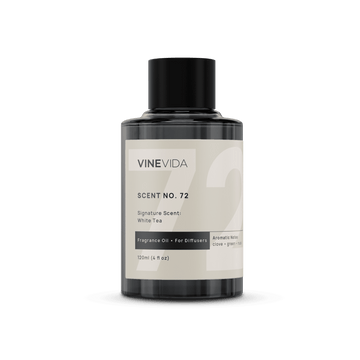The use of essential oils, such as orange essential oil, within the home has increased significantly in recent years, causing pet owners to ask if the orange essential oil is safe for dogs. Yes, the orange essential oil is safe for dogs.
The orange essential oil is not only an excellent insect repellent but also extremely useful in deodorizing odors. It is important when using essential oils with your dog to understand a dog’s sense of smell is a hundred times stronger than a human’s, meaning it can be easy to overwhelm your canine companion.
It’s also important to understand the proper dilution of essential oils to ensure safety when using them.
Is Orange Essential Oil Safe For Dogs To Smell?
Essential oil use in the home with pets should occur in a room with open airflow. If your pet needs a change of air, they should be able to come and go. It’s also important to remember that not all noses are created equally. While one person thinks orange essential oil is uplifting, another might not like it.
Dogs' sense of smell is much stronger than our own. Their sense of smell is said to be 100 times stronger than our own. What does this mean? For every drop of oil we smell, our pampered pooches smell a teaspoon full. This abundance of scents can become overwhelming for your dog, especially if they're in a closed-off room.
Is Orange Essential Oil Safe For Dogs - Toxicity?
Orange essential oil is not toxic for your dog unless they’re drinking it. You may ask, why would I let my dog drink citrus oil? Most likely, you wouldn’t, but accidents happen. If the bottle spills or a few drops fall when you’re using the oil, just be mindful of cleaning up the spill. Even when this happens, it will take a lot of oil to create issues for your dog. If you’re concerned, please talk with your veterinarian.
Read More: Oil Safe for Dogs.
Is Orange Essential Oil Safe For Dogs - Topically?
The orange essential oil contains both β-Myrcene, which has been helpful as an anti-inflammatory and a mild sedative, and α-Pinene. A-Pinene is a potent antimicrobial.
When using essential oils, it’s important to know that you do not need to apply the oil directly to the area needed. Essential oils are absorbed through the skin and into the bloodstream efficiently. Once in the bloodstream, the oils can travel where they’re needed the most. For example, if you’re concerned about your dog licking the blend, you can apply it to the back of your dog’s neck. Other places to use the blend include their tummy, inside of their ears, and back legs. Remember, as long as you have diluted the oil well enough into a carrier oil, it is safe for them to lick. Proper dilution should be kept at or under 1%.
Potential Benefits of Using Orange Essential Oil on Dogs
Many components in orange essential oil significantly benefit the health and well-being of your family’s favorite pet.
Orange essential oil includes a component, b-Myrcene. B-Myrcene has shown indications of providing mild pain relief when applied topically. The component has also been found to provide anti-inflammatory assistance, great for dogs with arthritis or joint issues.
Consistent users of orange oil in their homes state that the oil is a beautiful odor fighter, which is essential for pet owners, and an excellent insect repellent.
An orange essential oil, or any oil for that matter, will not solve the issues overnight. But if used correctly and consistently, you may see improvement over time. Be mindful if your pet reacts, as not all pets will respond the same. If you have questions, seek assistance from your veterinarian.
Avoid Using Orange Essential Oil on Irritated Skin
If possible, always avoid applying essential oils to places where the skin is irritated. Applying the blend near the area is perfectly fine, just not the area itself. Remember, you do not need to use the oil directly on the place to be treated effectively.
And remember, some dogs will react differently than others to certain oils. Just like humans, not one of us responds the same way. So if you notice your dog’s reactions or allergies are worsening, stop using the oil and seek advice from your veterinarian if needed.
Possible Adverse Reactions of Using Orange Essential Oil on Dogs
It’s essential to monitor how your pet reacts to certain oils. It’s easy to test his reaction by holding an open bottle about a foot away from him. Observe him for a few minutes. He may twitch his nose or close his eyes. He may come closer or turn away. And remember, not all dogs will react the same way.
Do not test more than one essential oil at a time, as it will be hard to know which scent they’re reacting to. Remember to leave space between your dog and the bottle; if you’re setting the bottle down, it should not be within their reach.
Other than watching their nose and eyes, you can also test their reaction by watching their mouths. They tend to smell scents through the air and will lick their lips to test a new fragrance out. Turning their head away or burying their face might indicate they dislike the smell.
Practical Applications Of Using Orange Essential Oil On Dogs
When considering applying an essential oil blend to your pet, there are several options. After testing a few options, you may decide one works better for you than another.
Some popular applicable options:
- Some pet owners create a balm using cocoa butter or beeswax.
- You can also apply essential oil to a gel, such as an Aloe Vera gel, and apply regularly.
- A third option may be to add the essential oil to a blend of water and vodka in a glass bottle and spray their bedding or areas they like to relax in the house. In this instance, you are not applying the spray directly to your dog. This method works exceptionally well when using orange essential oil since the main benefit of its components is the natural insect repellent.
In Short
The answer to whether an orange essential oil is safe for dogs is yes. You can feel comfortable using orange essential oil around and with your dog if you ensure proper dilution and use. Adequate dilution should be kept at or under 1%. As always, if you do notice a reaction, please discontinue use and consult your veterinarian.















